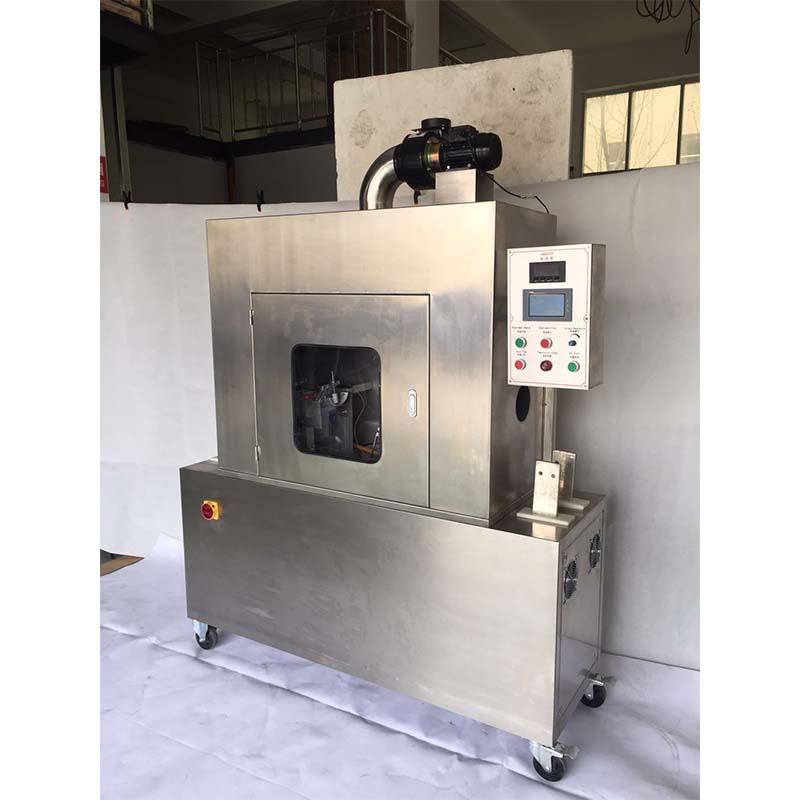computer control tensile strength tester manufacturers
The Evolution of Computer-Controlled Tensile Strength Testers An Overview of Manufacturers
In the world of materials testing, the significance of tensile strength cannot be overstated. It measures how much pulling or tension a material can withstand before breaking, making it essential for industries ranging from construction to aerospace. The advent of computer-controlled tensile strength testers has revolutionized this testing process, increasing precision, reliability, and efficiency. This article delves into the evolution of these innovative machines and highlights some prominent manufacturers in the industry.
Understanding Tensile Strength Testing
Tensile strength testing is primarily used to evaluate the mechanical properties of materials, including metals, polymers, and composites. The process involves applying a uniaxial tensile load to a test specimen until it fractures. Traditionally, this testing was performed using manual machines that required significant operator intervention, making the process prone to human error and inconsistencies.
With the integration of computer technology, tensile strength testers have transitioned to more automated systems that employ advanced software for data acquisition, analysis, and reporting. This evolution allows for a more streamlined testing process, improved accuracy, and comprehensive data management, essential for quality control and research purposes.
Features of Computer-Controlled Tensile Strength Testers
Modern computer-controlled tensile strength testers come equipped with various features that enhance their functionality. Key aspects include
1. Precision Control These machines use sophisticated algorithms to apply loads incrementally and with high precision, ensuring consistent results across multiple tests. 2. Real-Time Monitoring Advanced sensors provide real-time data on load and elongation, allowing operators to monitor the testing process closely and make necessary adjustments on the fly.
3. Software Integration Most modern testers come with software that allows users to create detailed reports, analyze data trends, and visualize results through graphs and charts.
4. User-Friendly Interfaces Many testers prioritize ease of use, featuring intuitive interfaces that simplify the setup process and allow technicians to configure test parameters quickly.
5. Remote Operation With the advent of IoT technology, some manufacturers have introduced testers that can be operated remotely, granting flexibility and enabling multi-site testing operations.
Notable Manufacturers in the Industry
computer control tensile strength tester manufacturers

As the demand for reliable tensile strength testing solutions has grown, several manufacturers have emerged as leaders in the market. Here are some of the key players
1. Instron A pioneer in the industry, Instron has been manufacturing tensile testing machines for over 75 years. Their equipment is renowned for accuracy and robustness, catering to a diverse range of materials and application areas.
2. ZwickRoell This German company is well-known for its precision testing machines and software solutions. ZwickRoell's tensile strength testers are widely used in automotive, aerospace, and construction industries, standing out for their innovative designs and advanced technology.
3. Shimadzu With a reputation for reliability, Shimadzu offers a wide range of materials testing equipment, including tensile testers that incorporate cutting-edge technology and extensive customization options to meet specific testing requirements.
4. MTS Systems Corporation MTS is another leading name in the field, providing various mechanical testing solutions. Their systems are highly adaptable, allowing users to test materials in tension, compression, and flexure, making them suitable for diverse applications.
5. Eldim A newer entrant in the market, Eldim specializes in automated testing solutions and has garnered attention for its user-friendly equipment and efficient data analysis capabilities.
Future Trends in Tensile Testing
As technology continues to evolve, the future of tensile strength testing is set to transform further. Emerging trends include increased automation, integration of artificial intelligence for predictive analysis, and developments in machine learning to optimize testing parameters and improve accuracy.
Moreover, the drive for sustainability is likely to influence the design and materials used in tensile testing machines, aligning with global efforts to reduce the environmental impact of manufacturing processes.
Conclusion
The evolution of computer-controlled tensile strength testers marks a significant leap forward in materials testing technology. With the precision and efficiency offered by these advanced systems, manufacturers are better equipped to ensure their materials meet stringent standards, ultimately contributing to enhanced safety and performance across various industries. As innovations continue to emerge, we can anticipate even more sophisticated testing solutions that will redefine the landscape of tensile strength testing.
-
Why the Conductor Resistance Constant Temperature Measurement Machine Redefines Precision
NewsJun.20,2025
-
Reliable Testing Starts Here: Why the High Insulation Resistance Measuring Instrument Is a Must-Have
NewsJun.20,2025
-
Flexible Cable Flexing Test Equipment: The Precision Standard for Cable Durability and Performance Testing
NewsJun.20,2025
-
Digital Measurement Projector: Precision Visualization for Modern Manufacturing
NewsJun.20,2025
-
Computer Control Electronic Tensile Tester: Precision and Power for the Modern Metal Industry
NewsJun.20,2025
-
Cable Spark Tester: Your Ultimate Insulation Assurance for Wire and Cable Testing
NewsJun.20,2025
 Copyright © 2025 Hebei Fangyuan Instrument & Equipment Co.,Ltd. All Rights Reserved. Sitemap | Privacy Policy
Copyright © 2025 Hebei Fangyuan Instrument & Equipment Co.,Ltd. All Rights Reserved. Sitemap | Privacy Policy
